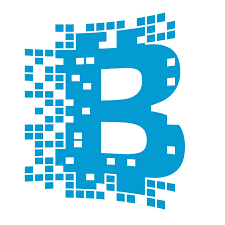Search posts by keywords:
Filter posts by author:
Related Reports
Related NEAT Reports
Other blog posts
posted on Jul 11, 2017 by Andy Efstathiou

Many Blockchain services vendors have observed that up to 75% of proofs of concept for Blockchain fail to meet their goals. Analysis of drivers for such widespread failure indicates that the initial use case was flawed because it was constructed to justify experimentation rather than solve business challenges. However, TCS has focused its Blockchain efforts on developing uses cases that can drive successful adoption and, more importantly, define the ecosystem for successfully meeting a use case’s key performance criteria. In this latest blog on current Blockchain activities in the financial services industry, I look at TCS’ approach to Blockchain in banking.
TCS’ Blockchain initiatives
TCS has been pursuing Blockchain for 3 years, and it has a group of 100+ engineers working on Blockchain initiatives across all industries. In banking, TCS’ Blockchain group is based in Chennai. TCS’ primary goal is to develop effective Blockchain use cases for the banking industry, and to date has successfully developed 150+ uses cases across all industries.
The use cases for banks segment into key areas of interest for banks:
- Trade settlement (securities, FX, payments, etc.)
- KYC/AML
- Trade services (import/export).
The largest demand for Blockchain services so far is for KYC/AML services. The key drivers for these areas of interest are processes where one of the following conditions apply:
- Process requires frequent document re-verification: KYC requires re-verification periodically, and for each new product sale. Trade finance requires re-verification as the documents pass along a chain of activities, with multiple counterparties
- Timelines and chain of activities must be attested: dispute resolution in trade settlement and trade services requires the ability to trace back to the point in time where a discrepancy in the interpretation of activity occurred.
The processes are primarily from closed loop transactions.
TCS offers consulting, ITS, and process audit services for Blockchain activities. In financial services, TCS has blockchain initiatives in retail banking, investment banking, capital markets, commercial lending. While TCS has not completed the implementation of blockchain project in operations delivery, it has done several POCs for customers in payments, securities settlement, trade finance, "know your customer" and supply chain finance. It is currently involved in a live Blockchain operations environment for a large global bank for Blockchain support of payments), providing audit support for the project. This allows TCS to enhance its understanding of what works and doesn’t work in a Blockchain environment, of which there are few, and none of scale, at present.
TCS works with major Blockchain technology vendors including Ericsson-Guardtime, IBM, Microsoft, and associations (e.g., MIT Media Lab Digital Currency Initiative) as well as through its COIN partners. It has a proprietary Blockchain solution, which it deploys as required in its POCs, but does not sell as a standalone solution.
Conclusions
Global financial institutions are heavily experimenting with Blockchain to understand how and where to use it in their business – or even better, how to use it to change their business model. However, our research shows 70% to 80% of Blockchain POCs fail to meet their initial business case. The biggest challenge in Blockchain is understanding what makes a good business case, and getting stakeholders to cooperate on adoption. The technology, despite its arcane and novel characteristics, is not the primary impediment to adoption.
TCS is focusing its Blockchain efforts on developing a granular understanding of how Blockchain works, and when it succeeds in a business environment. This approach will create efficiency in Blockchain adoption for financial institutions because they will waste less effort on “a solution in search of a problem” and spend more resources applying the right solution to business challenges. TCS is not there yet, but headed in the right direction.
